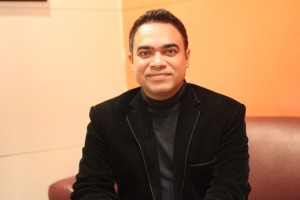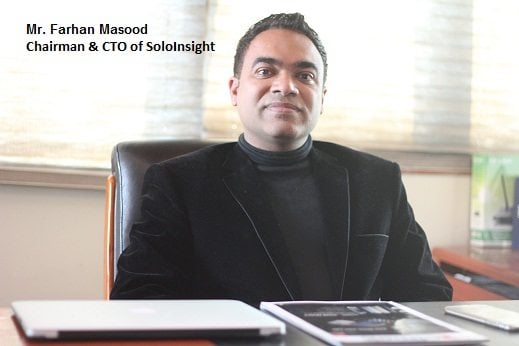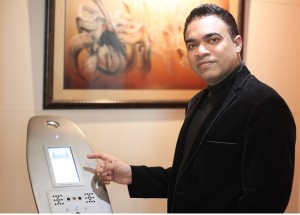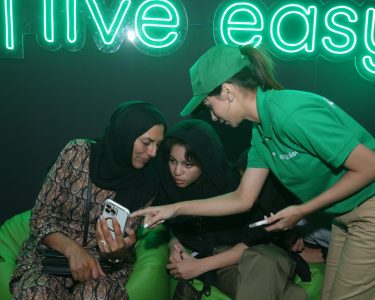Exclusive Interview with Mr. Farhan Masood Chairman and CTO of SoloInsight
Made in Pakistan
After dropping out of a graduate program at the Forman Christian College, Farhan Masood introduced Urdu, Arabic and Persian languages online and started working with the CM Punjab on digitizing the land revenue records. From there he moved on to work as an advisor to General Moin Uddin Haider in the Ministry of Interior and also served as an advisor in the Ministry of Science and Technology as. He went to work with the Government of Dubai as the Project Director of Dubai E – Government and was made responsible for a budget of USD 196 million, from which was spent a significant amount of research and development. After a series of major achievements, he decided to return to Pakistan and to turn his technical vision into reality by recognizing and gathering world class talent with in his local environment.
Farhan Masood is now the Chairman and CTO of SoloInsight Inc. Biogate; the most recent and 7th generation result of his evolutionary vision has been able to register a million records on the device with an excellent backup mechanism. It searches through a million records and identifies an individual’s irises and face in 3D in less than half a second from a distance of five feet. This is one of the fastest algorithms in the world and way ahead of the curve in the market. The product also solves for biometric disability by ensuring that the seven percent population in the world that has biometric disabilities can be recognized as well.
They have their own telepresence robots, produced in conjunction with an American company that allows their engineers to serve customers globally in real time, giving the customer the feeling that he has a support engineer present on the ground.
NetMag: How do you look back on your professional life? Why did you decide to come back?
Farhan Masood: I am just a curious scientist linked with the technology business for last 17 years. I have worked here with the Ministry of Science and Technology and Ministry of Interior. I have worked abroad with the Dubai Electronic Company. I always got excited about the futuristic ideas brought up in his movies and tried to turn them into reality so they could be brought into the life of regular people. When I was a Project Director in Dubai, I learned about visual recognition. There we created the first OCR for Arabic and the first automatic number plate recognition for the Arabic language. It all started with fingerprints, algorithms, facial and later on iris and retina scanning algorithms for workforce management.
One day I was watching the famous movie Minority Report, by Steven Spielberg, with my friend who happened to be the Country Manager for Armani Suitings. He saw the movie and said ‘I wish I had a system which would enable his store managers to greet all their customers with their names as soon as they walked in the store. A system that could calculate the time that a customer spends looking at each product so that later the product highest on that list could be offered to them at a discounted price.’
It blew up my mind and I decided to quit my job and to return to Pakistan.
At that time there was a Russian company that got USD 70 million in funding for R&D in this area. Another American company which got USD 110 million in funding, whereas we had nothing to start with. In the last ten years, I am glad that we have achieved significantly more than both those companies put together.
NM: Technology has changed the way we look at human beings. How do you see the man before the global village and man in the global village?
FM: Technology has made processes easier and repeatable that reduces chances for errors. The ERP system that we have designed has been built to ensure that processes are followed and compliance is enforced. It has definitely improved efficiency significantly.
As far as the common man and his abilities are concerned, it is a lot easier to surf anything on Google. We started off in a time when there were no resources, not even well-equipped libraries. Now, one can access whole libraries online. From a social point of view, a lot of Pakistani companies were able to score customers in a market where they would have had no access without internet. This is further changing with telepresence. There is also a lot of business process outsourcing for people who are operating American businesses from Pakistan.
Our own company is an example. We created our own telepresence robots in conjunction with another American company. Our engineers are able to serve our customers in the US and the customers are able to feel that our engineers are with them, moving around freely. These technologies are definitely changing the dynamics.
Along side being a scientist, I am a social activist running the patriotic movement known as Go Green Pakistan. I feel that children are no longer taught how to love their country. As a child, the way I celebrated 14th August is very different from how children celebrate, or actually, don’t celebrate it today. We encourage our members to turn their display pictures green with Pakistan’s flag in August. On Facebook alone, we have over 1.6 million members in 80+ countries. It is now a global event.
I would mention the abuse of social media here. People who are living together are far away from each other and those who are residing miles apart have come closer. The positive use of social media is the only way to empower us.
NM: How would you opine on your tech-manufacturing business?
FM: Hi-Tech manufacturing is something which takes place far away from Pakistan. Here most of the technology businesses are based on services: the same services which are offered in the US at a much cheaper price while everything is transferred digitally. The other business is creating products like mobile apps which can be uploaded freely without having to deal with customs or logistics companies.
I had this crazy idea that if Nokia can come from Finland why not a local Pakistani brand can get global acclaim? So, we decided to get into manufacturing and to put hard products around our algorithms. We created 3D Facial and Iris Scanners that are used for workforce management, compliance to state and federal regulations and electronic gate for access control.
Initially, when we started manufacturing in Pakistan, we had a lot of problems in terms of customs; inbound and outbound traffic of assets is really difficult for a startup. On top of that manufacturing requires high-capital investment., but interestingly, once a product is ready all you have to do is just to repeat the process and to focus on the sales of that product. So, the companies that have a physical product have the ability to grow extensively once they are upstream. But the process of going upstream, in my case, took ten years.
NM: How are SoloInsight and SoloTech changing lives?
FM: Solotech has recently merged into sole insight, which is a much bigger US based business. We have just raised USD three million on 18 million post-evaluation. That will help us in growing our business globally. We will hire more people in Pakistan and in the States, improve our products and shorten the supply-chain cycle. The journey of Solotech has been really important. What we have achieved here is the best working team. It’s a place where we do not have to watch each other. Everyone is really motivated to do their work. No matter where I am, I do not have to chase my staff. It is a culture based on fun and happiness.
We have also created an amazing business model. In America we do not sell our products, we rent them and charge on a per user basis. There is no capital expenditure to our American customers. The approval process is easier. This is where we have created the idea of proof of concept (POC). We are brave enough to go to potential customers and offer to deploy this USD 100,000 worth of equipment. In Pakistan, we are lucky to have 84 customers that have been a great testing ground for us. We are thankful to these companies for letting us play and experiment to make sure that we are improving our product. Within Pakistan, it has changed the dynamics of a workforce. A survey conducted recently showed a satisfaction rate of nine out of ten customers. Some people think we only make facial recognition systems but in truth that is only about five percent of what we do. We are in fact a big-data company. We gather information through our products and ensure that everybody is compliant.
NM: How do you see 2014?
FM: It was a great year in terms of many things. I spent most of it in the USA and it was great to see that my team was competent enough to successfully run the business in my absence. Secondly, we were able to raise capital. Not only the acceptance of a Pakistani company in America was overwhelming but also the fact that we got partners who played a significant role in global security space. We have recently signed a bilateral technology collaboration with Fujitsu. It will not only change the way we work but also enhance their product line. The same is true for many other Pakistani companies who scored different projects in 2014. During my stay in the USA, I realized that the perception of Pakistan is changing.
NM: Cyber Security has been a burning issue for quite some time. Is there some way to control it?
FM: There is obviously a way. You see every bank is online and none of them report a hacking incident. Data Security can definitely be done. Information can be made unhackable. However, we have to change our approach. We have to hire the right people for this job. This field needs investment. We had potentially the same issues in our organization but we tackled them by investing in security consultants.
NM: How do you compare your company with your competitors?
FM: We do not compare ourselves with others because we are the only technology manufacturers of our kind. We have our own optics and our own patents. We do not see ourselves as a security company but as an accountability company. We ensure that the premises are secured. Most of the security threats are from those who are inside an organization. We make the interior strong by ensuring that access control processes are in place. We are neither a trading company nor a CCTV provider. We should not be a threat to anyone but a smart solution to solve critical issues.
NM: What are your plans for 2015?
FM: In 2015, we intend to add more and more smartness to our systems. One of our recent achievements in that area is the improvement in our algorithms. We are very excited to launch this enhanced version of Biogate that is able to register a million records on the device itself. We can register two irises and the face in 3D of a person and the system can search through a million records to recognize these irises and face from a distance of 5 feet in less than half a second. That is a revolution in our industry. We have also created a solution around biometric disability. There is some seven percent of the world’s population which has biometric disability meaning there are people whose eyes and faces cannot be scanned properly by any system and therefore, the system is unable to recognize them. We have made smart systems for banks and trading floors as well. We are working on asset management which will not allow you to leave the door with someone’s laptop or mobile phone without proper authorization.
Furthermore, we have the visibility platform, which is a Wi-Fi-based application that allows its user to know who is away or who is within the premises, assign tasks to them, track task status and review recorded communication that has taken place with that person. There is also a field worker management solution and a contractor management system.
NM: As an entrepreneur, what suggestion will you give to youngsters who want to start their own business?
FM: It is a journey of making impossible things possible. A lot of things happen during this journey. Family, friends, and peers may even call you crazy for having big ambitions. I was not encouraged for thinking about competing in the international market. I had a different way of looking at things. One advice that I can give: you should never give up your dreams. Don’t take negative remarks as a discouragement. If I can make it, you are absolutely going to make it.





